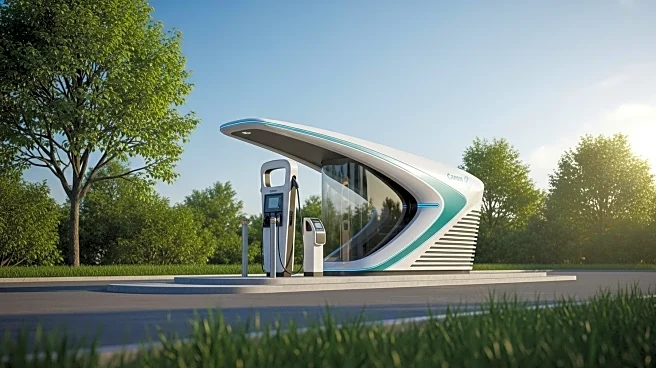What's Happening?
The European Commission is set to introduce a new law aimed at increasing the purchase of electric vehicles by companies, as company cars represent 60% of new sales in Europe. However, the European automotive lobby, ACEA, led by Mercedes boss Ola Källenius, opposes this legislative approach, advocating instead for coordinated national fiscal incentives and best practices. ACEA argues that early adopters of electric vehicles face higher total costs of ownership, insufficient charging infrastructure, and a sluggish second-hand market, which could hinder company car electrification. Despite these claims, research indicates that the total cost of ownership for electric cars is already lower in many European countries, and charging infrastructure is meeting targets.
Why It's Important?
The push for non-legislative incentives by ACEA highlights the tension between regulatory approaches and industry preferences in the transition to electric vehicles. If successful, ACEA's approach could influence the pace and nature of EV adoption across Europe, impacting manufacturers, consumers, and environmental goals. The debate underscores the broader challenge of balancing industry interests with environmental commitments, as the EU seeks to reduce emissions and promote sustainable transportation. The outcome could affect the competitiveness of European carmakers in the global market, especially as other regions, like China, advance their EV strategies.
What's Next?
The European Commission's upcoming law will likely face scrutiny and lobbying from the automotive industry, which may lead to adjustments or compromises in its implementation. Stakeholders, including environmental groups and industry leaders, will continue to debate the best path forward for EV adoption. The Commission's decision could set a precedent for future regulatory approaches in the EU, influencing how other sectors address sustainability challenges.
Beyond the Headlines
The resistance to legislative mandates for EV adoption reflects deeper industry concerns about the economic implications of rapid electrification. The debate raises questions about the role of government in driving technological change and the potential for fiscal policies to achieve environmental goals without direct regulation. The situation also highlights the importance of infrastructure development in supporting new technologies and the need for comprehensive strategies that address both market and environmental needs.










